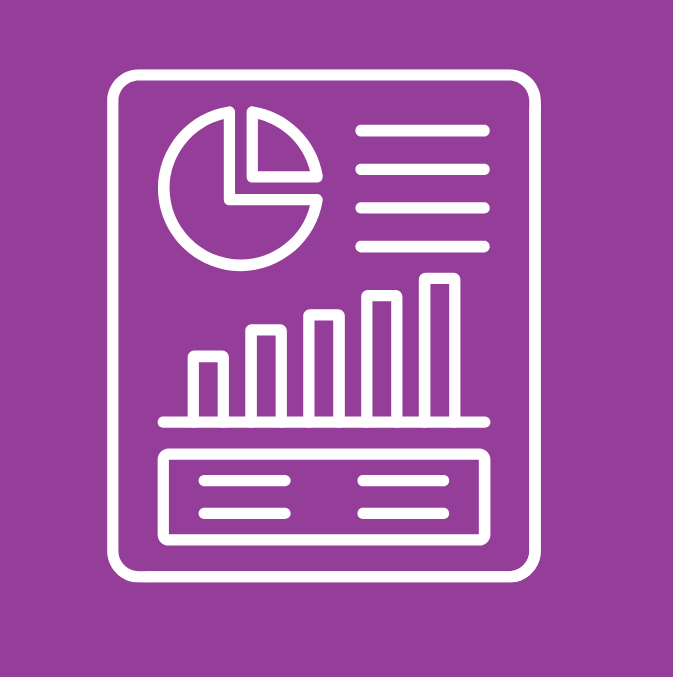
Articles
Explore our latest articles, developed by our team of evaluators and special guests, grounded in real-world experience to support your evaluation practice—whether you're a beginner or an expert.
Browse below or filter by category using the dropdown!
New Resource: “Accessibility in Reporting”
Creating an accessible evaluation report isn’t just about technical standards—it’s about making sure your findings can be understood, navigated, and used by the widest possible audience. This article introduces our Accessibility in Reporting infographic, a practical guide with seven key components and easy tips you can apply right away to improve clarity, inclusivity, and usability in every report.
Start Your Evaluation Year Strong: 5 Things Every Evaluator Should Set Up in January
Kick off your evaluation year with confidence by following five practical steps designed to streamline workflows and maximize impact. These steps help evaluators stay intentional, responsive, and efficient to support meaningful results and stronger relationships throughout the year. Start your year with clarity and purpose to achieve evaluation success!
2025 Wrapped: The Year In Evaluation Learning
This year-end wrap-up takes a look at the Eval Academy content that evaluators engaged with most in 2025—from our top articles and most downloaded resources to new courses, webinars, and learning tools. It offers a snapshot of what readers found most useful this year and highlights the practical evaluation topics that shaped our work.
9 Strategies For Effectively Managing Feedback On Evaluation Reports
Managing feedback on evaluation reports can be one of the most challenging parts of the reporting process, especially when multiple reviewers, approval chains, timelines, and perspectives are involved. This article outlines nine practical strategies to streamline how you plan for, request, organize, and integrate feedback so your reporting process stays clear, efficient, and on track.
New Template: “Paper Survey Template”
This ready-to-use Paper Survey Template helps you create clear, well-structured paper surveys in Word without the usual formatting challenges. It includes customizable examples of common question types, a built-in introduction section, and practical tips to streamline setup—making it easier to design participant-friendly surveys that collect the data you actually need.
Applying Trauma-Informed Evaluation Principles In Gender-Based Violence Evaluations
Evaluating gender-based violence programs requires care, intention, and a trauma-informed mindset. This article explores how trauma-informed principles can be embedded throughout every stage of an evaluation—supporting safety, minimizing harm, and honouring the voices of survivors and frontline workers. It offers practical, real-world considerations for conducting meaningful and ethical evaluations in this complex and sensitive sector.
A Data Party Is… - Video
Learn how to use a data party to sensemake your data! A video summary.
Considerations When Hosting A Qualitative Sensemaking Session
Qualitative sensemaking sessions—also known as data parties—are collaborative spaces where participants engage directly with qualitative findings to co-create meaning, refine themes, and strengthen recommendations. Unlike quantitative sessions that typically follow completed analysis, qualitative sessions benefit from earlier engagement, allowing participants to shape emerging insights and add valuable context. To ensure effectiveness, evaluators should clearly define session objectives, organise findings to avoid information overload, and incorporate visuals to break up text. Common challenges include managing groupthink, handling sensitive data with care, and balancing depth with time constraints, all of which require thoughtful planning and flexibility.
Managing Stress In Evaluation
Discover practical strategies for managing stress in evaluation projects. This article explores common stressors faced by evaluators, including ambiguity, emotional impact, constant change, and limited resources. Learn actionable tips for reducing stress through enhanced project management, protecting scope and budgets, fostering team support, and using self-reflection. The guide also highlights leadership habits that promote healthy evaluation practices and offers tools for building resilience and maintaining balance. Ideal for evaluators seeking to improve wellbeing and effectiveness in their work.
Bridging The Gap: From Evaluation Questions To Indicators
Learn how to bridge the gap between evaluation questions and indicators in program evaluation. This article explains why developing indicators is a crucial step before choosing methods and measures, ensuring evaluations are focused, feasible, and aligned with intended outcomes. Discover practical tips for selecting specific, measurable, and timely indicators, balancing quantitative and qualitative approaches, and using frameworks like logic models and theory of change. The guide also covers indicator types, triangulation, and the importance of involving stakeholders in indicator design for robust, actionable evaluation results.
Evaluability Assessments (EAs): When To Do Them, And When Not To
Evaluability Assessments (EAs) can save time, money, and effort by showing if a program is ready for evaluation—or if it’s too soon. This article breaks down when an EA is worth doing, when it’s not, and what to try instead.
The Top 5 Cognitive Biases In Evaluation (And What To Do About Them)
This article highlights the five most common cognitive biases that can influence evaluation work and offers practical tips to avoid them. A quick, useful read for anyone who wants to strengthen the clarity, credibility, and impact of their evaluations.
Two People Walk Into An Interview… An Intro To Dyadic Interviews For Evaluators
This article introduces dyadic interviews—a method where two participants are interviewed together—and explores their unique benefits, challenges, and applications in evaluation.
You Should Participate In An Evaluation Case Competition
Ever thought of testing your evaluation skills in a real-world challenge? This article shows how case competitions offer hands-on practice, networking, and even career opportunities—making them a fun and rewarding way to grow as an evaluator.
Enhance Your Evaluation Skills With Our Top Resources!
This article brings together Eval Academy’s top resources—organized around our “Three U’s” approach: Understand, Uncover, and Utilize. Whether you’re new to evaluation or ready to advance your practice, these curated resources will help you plan smarter, collect stronger data, and communicate findings with impact.
Part 2: How Do You Present Triangulated Data?
In Part 2 of our series on data triangulation, we move from theory to practice. This article shows you how to present triangulated findings in your evaluation report.
Imposter Syndrome In Evaluation: A Student’s Perspective
Starting out in evaluation can be exciting—but also intimidating. In this article, MSc student Letitia Koen shares her experience with imposter syndrome during her practicum and how asking questions, seeking feedback, and celebrating small wins helped her build confidence. A must-read for students and new evaluators navigating self-doubt in their own journeys.
Part 1: What Is Data Triangulation In Evaluation?
Evaluations are stronger when they don’t rely on just one perspective. In this article, we break down what data triangulation is, why it matters, and how it can help you create more credible, trustworthy findings.
Writing Evaluation Questions - Video
Learn how to write effective evaluation questions with these 10 expert tips from Eval Academy. Discover how to align questions with purpose, engage partners, and explore outcomes, systems, and context.
New Resource: “Tips For Writing A Winning Proposal”
Learn how to draft a winning proposals with tips on understanding RFPs, building strong work plans, showcasing experience, and aligning budgets to client needs.




















